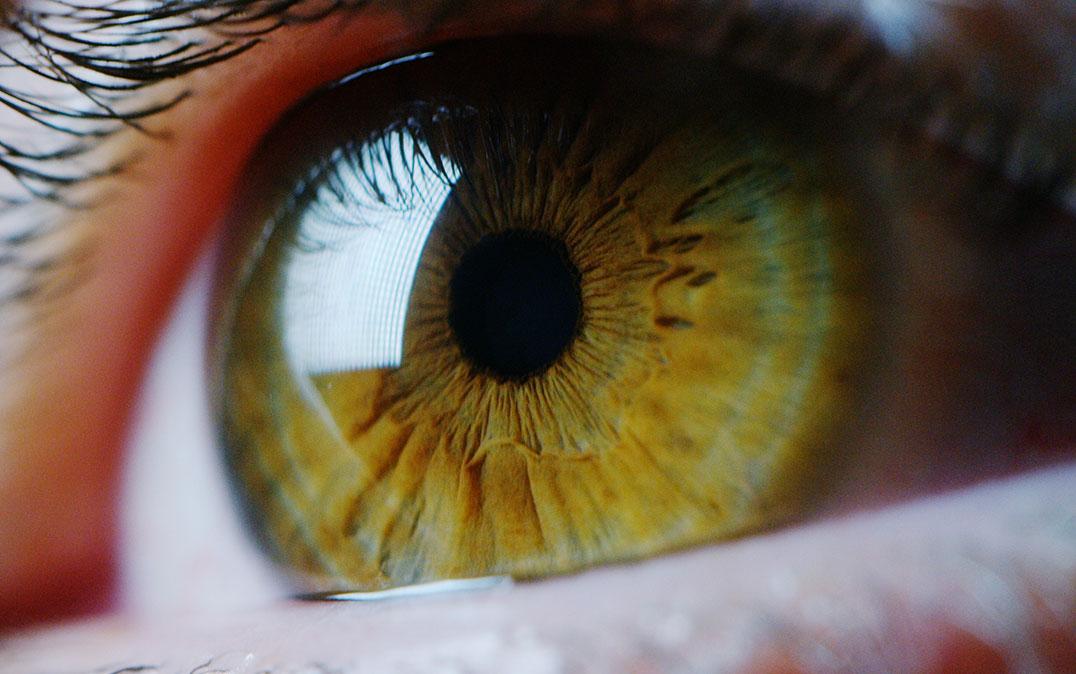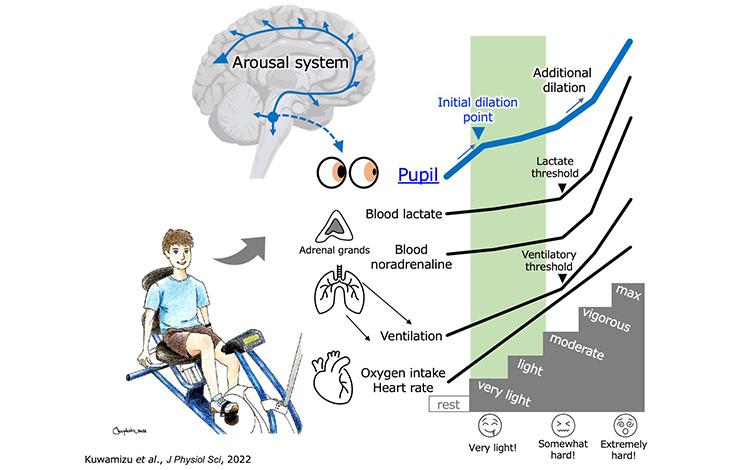Research News
Window to the Brain: Pupillometry Sheds Light on Exercise Intensity-Dependent Activation

Image by HQuality/Shutterstock
Researchers find that even very light exercise awakens the brain
Tsukuba, Japan—In a study conducted by researchers from the University of Tsukuba to identify activation of the arousal system, it was found that even very light intensity exercise elicited pupil dilation. Exercises, like yoga, that do not cause a measurable stress-related hormonal response (like increases in adrenocorticotropic hormone, norepinephrine, or epinephrine level in blood) nonetheless activate brain pathways that lead to better mood and better cognitive performance. Because, in human studies, activation of the arousal system is usually determined by measuring the level of neurotransmitters circulating in the blood, until now, it was thought that only moderate-intensity exercise—exercise that is sufficient to elicit the stress-related hormonal response—could activate these brain pathways. In addition, with this existing methodology, in humans, it was not possible to measure when increased activity in the arousal system begins during exercise.
The study, published this month in The Journal of Physiological Sciences, found that pupil dilation could be used to identify when the level of arousal increased during graded exercise.
"Because we had systematically conducted a series of translational studies from rodents to humans, we were able to hypothesize anew that, even with very low intensity exercise, the ascending arousal system would be activated, which, in turn, allowed us to adapt an existing technique to address an area that was lacking," explains senior author Professor Hideaki Soya.
Pupillometry is considered to be a reliable indicator of arousal because pupil dilation and activation of the arousal system are initiated in the same autonomic nervous system pathways. However, it was first necessary to quantify pupil dilation in relation to standard measures of exercise intensity like peak oxygen intake, carbon dioxide output, and minute ventilation. To achieve this, the team captured and analyzed data from 26 young men as they exercised at different intensities on a cycle ergometer.
Ryuta Kuwamizu, lead author of the study, says "We identified 2 prominent periods of increases in pupil diameter—one occurred when transitioning from rest to very light intensity, and another occurred around moderate to vigorous intensities, which is similar to the ventilatory threshold." The two-phase trend of pupil dilation in relation to exercise intensity appeared to indicate that (1) the arousal system was activated during very light intensity exercise and (2) there was a pupil dilation threshold that coincided with the stress-related hormonal response.
The findings of this study provide strong evidence to support that even very low intensity exercise elicits the arousal effects that lead to better mood and better cognitive performance.

Schematic illustrating intensity-dependent pupil and physiological/biochemical responses.
###
This work was supported in part by the Japan Society for the Promotion of Science (JSPS) grants 16H06405, 18H04081, and 21H04858 to Professor Hideaki Soya; grant number 20J20893 to Ryuta Kuwamizu; the Japan Science and Technology Agency (JST) Grant JPMJMI19D5 to Professor Hideaki Soya; and the Meiji Yasuda Life Foundation of Health and Welfare Grant to Ryuta Kuwamizu.
Original Paper
The article, "Pupil‑linked arousal with very light exercise: pattern of pupil dilation during graded exercise," was published in The Journal of Physiological Sciences at DOI: 10.1186/s12576-022-00849-x
Correspondence
Professor SOYA Hideaki
Advanced Research Initiative for Human High Performance (ARIHHP)/ Faculty of Health and Sport Sciences, University of Tsukuba
Related Link
Faculty of Health and Sport Sciences
Advanced Research Initiative for Human High Performance (ARIHHP)



